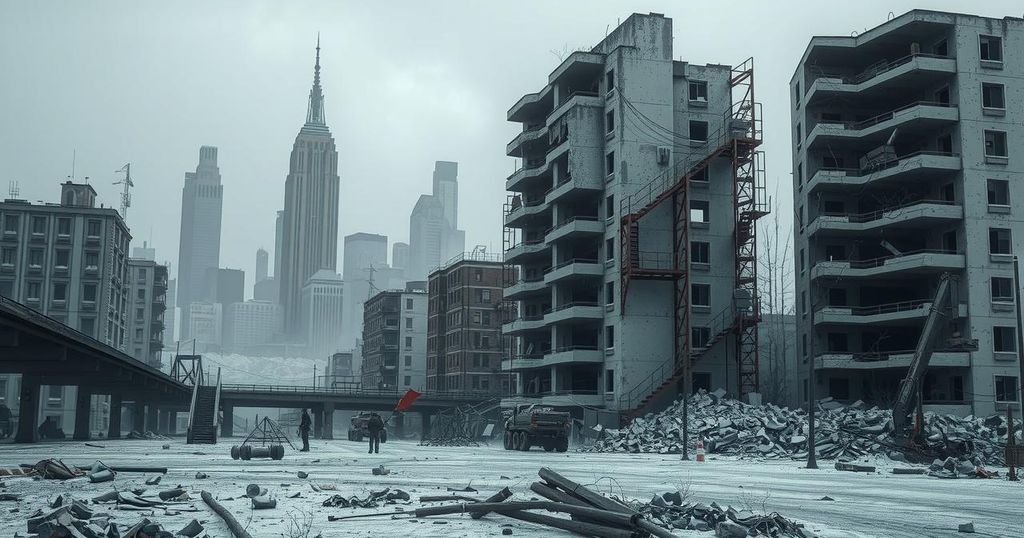China’s Diplomatic Balancing Act Amidst DR Congo Conflict Challenges
China’s balancing act in Africa is tested by the conflict in eastern DR Congo, where Rwanda’s involvement has prompted a shift in China’s traditionally neutral stance. Beijing has recently criticized Rwanda’s support for M23 rebels, reflecting growing diplomatic assertiveness. The ongoing unrest significantly impacts China’s business interests in the region, leading to speculation about the future of its investments and diplomatic relations with both nations.
The conflict in the eastern Democratic Republic of Congo (DR Congo) is challenging China’s policy of maintaining neutrality while expanding its business interests in Africa. The ongoing strife, exacerbated by Rwanda’s alleged involvement, has prompted China to reevaluate its diplomatic stance, highlighting the delicate balance it must maintain with both countries to safeguard its commercial operations and mineral procurement.
Historically, China has avoided taking sides in African conflicts, focusing instead on protecting its extensive commercial interests. Its past diplomatic responses have typically eschewed criticism of African governments, even amidst political upheavals, opting instead for a policy of non-interference. As Professor Zhou Yuyuan from the Shanghai Institutes for International Studies notes, China usually refrains from proposing solutions, encouraging international organizations to engage in diplomatic efforts.
The resurgence of violence in DR Congo, particularly with the Rwandan-supported M23 rebels, has forced China to alter its rhetoric. Initially, China criticized unnamed “foreign forces” backing the M23, but recently it has become more direct, publicly urging Rwanda to cease its military support. This change followed significant advances by the M23, capturing strategic cities, and was evidenced in China’s support for a UN Security Council resolution demanding Rwanda’s immediate withdrawal from DR Congo.
Experts suggest that this shift in China’s approach correlates with mounting evidence from UN reports regarding Rwanda’s role in supporting the M23. The protracted nature of the conflict has made transparency crucial, and China’s need to preserve its access to DR Congo’s mineral wealth—including vital resources like coltan and cobalt—may have influenced this new diplomatic posture.
China’s business interests in DR Congo are notably significant, with numerous companies involved in mining and infrastructure projects throughout the region. Despite the unrest, the impact on these operations appears minimal, as many mines and projects are situated outside the immediate conflict zones.
China has historically provided military support to both Rwanda and DR Congo, but the extent of this support in the context of the ongoing conflict remains unclear. Nonetheless, reports indicate that Chinese arms are present in both nations’ militaries.
Thus far, China maintains that its relations with both countries remain strong despite the conflict. Collaborative projects under China’s Belt and Road Initiative are extensive, with major investments made in both DR Congo and Rwanda, indicating a long-term commitment to both nations. China’s significant financial contributions to infrastructure development in DR Congo further underline its strategic interest in ensuring the cessation of hostilities, thereby maintaining stability conducive to its investments.
China’s evolving response to the conflict in eastern DR Congo encapsulates its intricate balancing act between maintaining favorable relations with both DR Congo and Rwanda while protecting its extensive business interests. By addressing Rwanda’s military involvement more directly, Beijing signals a shift in its diplomatic strategy, potentially influenced by evidence of external interference affecting its resource access. The resolution of this conflict is paramount not only for regional stability but also for safeguarding China’s vital economic investments in these mineral-rich territories.
Original Source: www.bbc.com








Post Comment